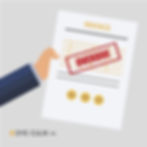Collecting Debts From Customers: What Laws Do Businesses Need to Follow
- Shawna Dye Culik
- Mar 25, 2022
- 4 min read
Updated: Apr 13, 2022
There are times when your business may have a customer who refuses to pay and you are forced to proceed with collections. Knowing the proper way to do this can protect your business and save you from incurring penalties.

Enacted in 1978, the federal Fair Debt Collection Practices Act protects consumers by requiring that debt collectors treat debtors fairly and prohibits certain methods of debt collection. Generally, the FDCPA applies only to third-party debt collectors; however, some states have similar laws that apply to original creditors, as well, which means the original business the consumer owed money to is held accountable for how they collect those funds.
The FDCPA only applies to debts incurred for consumer purposes, that is, for family, personal or household use. It does not apply to debts incurred between businesses or for business purposes.
If you are collecting from customers or are planning on hiring a debt collection agency to collect the funds for you, here are some basics you should know about the debt collection laws.
The FDCPA usually does not apply to your business directly when you contact delinquent customers but does apply to any debt collection company or law firm that regularly collects debts owed to others. To protect yourself, you should make sure any company/firm you retain is reputable as you could be held accountable if they do not adhere to the FDCPA.
The North Carolina Debt Collection Act, N.C.G.S. § 75-50, is the North Carolina version of the FDCPA. Likewise, it only applies to collection of consumer (non-business) debts. Though there are nuances between the two acts, it is generally accurate to say that most things that would be prohibited under the FDCPA would also be illegal under the North Carolina Debt Collection Act. The differences are in some of the specific requirements, explained below.
Prohibitions Under the FDCPA
The FDCPA sets out a list of prohibited conduct by debt collectors. Again, these only apply to third parties collecting debts on behalf of someone else.
Communicate with the debtor in a harassing or abusive manner including vulgar or profane language.
Call the debtor before 8:00 am or after 9:00 pm.
Falsely represent themselves, the original creditor, or the debt amount.
Misrepresent themselves as a lawyer (if they are not) or a law enforcement officer.
Contact the debtor if they have retained an attorney.
Contact a third party, such as a boss, parent, or friend regarding the debt.
Threaten legal action if they have no intention of following through.
Threaten the debtor by saying they will be arrested.
Reporting false information to the credit bureaus.
Publish the name, address, or other personal information about the debtor.
Take or threaten to take the debtor's property unless this can be done legally.
Contact the debtor by postcard.
Continue to contact the debtor after a validation request is received.
A debt collector is also required to provide “verification” or “validation” of a debt. The debt collector is required to identify themselves, reveal that they are a debt collector, alert the debtor that any information they obtain can be used to collect the debt, and notify the debtor that they can dispute the debt. They must also provide the name and address of the original creditor. If the debtor requests validation of the debt, they must also provide proof of the debt and discontinue collection attempts until this validation is provided.
A violation of the FDCPA can make a debt collector liable for up to $1,000 in statutory damages, plus any emotional or physical distress caused by unlawful debt collection.
Prohibitions Under the North Carolina Debt Collection Act
The North Carolina Debt Collection Act also prohibits unfair and deceptive methods of debt collection, and specifically makes the following illegal:
1. Using or threatening violence.
2. Falsely accusing anyone of a crime, e.g., for not paying.
3. Threatening to fraudulently notify credit reporting agencies.
4. Stating that you may be arrested for non-payment.
5. Threatening to take any other action prohibited by law.
6. Threatening to do anything else to collect, if you wouldn’t actually do such a thing.
7. Harassment, including using profane language, placing excessive telephone calls, or calling someone at their job if the debtor requested no such calls be placed.
8. Making deceptive representations, including failing to disclose that the communication is related to the collection of a debt.
9. Contacting a consumer after being notified that they are represented by an attorney.
One of the primary differences between the North Carolina Debt Collection Act and the FDCPA is that under the former, there is no right to request verification or validation of a debt, the documentation showing whether the debt is valid.
Notably, though, the penalties under the North Carolina Debt Collection Act are higher than under the FDCPA – up to $4,000 per violation.
Of course, avoiding debt collection altogether should be your goal as a small business, but if there is no way around it, make sure you, and any agency you hire, understands and adheres to the Fair Debt Collection Practices Act and the North Carolina Debt Collection Act.
Dye Culik PC is a North Carolina business law firm. We work with businesses and franchises in all aspects of the business life cycle including dealing with debt owed to your business and the proper way to handle it while protecting your business. We also help business owners deal with personal or business debt collection or credit issues. Contact us for a consultation if you are dealing with a debt collection matter with a customer or for yourself.

